FROM APHIS EMAIL:
Subject: APHIS Establishes Box Tree Moth (Cydalima perspectalis) Quarantines in Delaware and Pennsylvania
To: State, Tribal, and Territory Agricultural Regulatory Officials
Effective immediately, the Animal and Plant Health Inspection Service (APHIS), in cooperation with the Delaware Department of Agriculture and the Pennsylvania Department of Agriculture (PDA), is adding the entire State of Delaware and Erie County, Pennsylvania to the box tree moth (BTM; Cydalima perspectalis) quarantined area.
APHIS is taking this action in response to the confirmed detections of BTM in a residence in Little Creek, Delaware, on July 11 and in Lakeside Cemetery in Erie, Erie County, Pennsylvania, on August 29. PDA has established an intrastate quarantine area for BTM that parallels the Federal quarantine. This Federal Order supersedes Federal Order DA-2024-17.
To prevent the spread of BTM, APHIS considers it necessary to regulate the interstate movement of regulated articles of boxwood from quarantined areas. Boxwood plants may only be moved interstate from a quarantined area from an establishment operating under a compliance agreement, and only if accompanied by a certificate issued by a state agricultural authority certifying that the requirements of this Federal Order and the compliance agreement have been met. These requirements will prevent producers and distributors of boxwood from moving infested plants interstate. State agricultural authorities may prescribe additional safeguards and protocols.
APHIS prohibits movement of all other regulated articles of boxwood, including plant parts, pieces, cuttings, clippings, debris, and any portion of the plant, alive or dead, except for decorative purposes.
The attached Federal Order (click here) and additional information about BTM are located on the APHIS box tree moth webpage. For additional information, you may contact:
Matthew Travis
National Policy Manager
580-240-5394
matthew.a.travis@usda.gov
Box Tree Moth poses a serious threat to boxwood production, maintenance, and export.
If you see, or think you see this pest, or its damages in New Jersey please contact:
- RCE -Cumberland Co. Nursery Agent: Tim Waller – twaller@njaes.rutgers.edu
- Nursery Inspection Program Manager: Sarah Katzenbach – sarah.katzenbach@ag.nj.gov (609) 406-6939
Please educate yourself about this in-bound pest here – Resources:
- Video: Click here for- “Demystifying Box Tree Moth” – HRI
- Factsheet: Box Tree Moth: Fact Sheet, Management & Visual Guide
- OSU Guide: What to look for with Box Tree (Boxwood) Moth
- USDA-APHIS Box Tree Moth : APHIS BTM Landing page
- [Draft] Compliance agreement: National Plant Board – Box Tree Moth
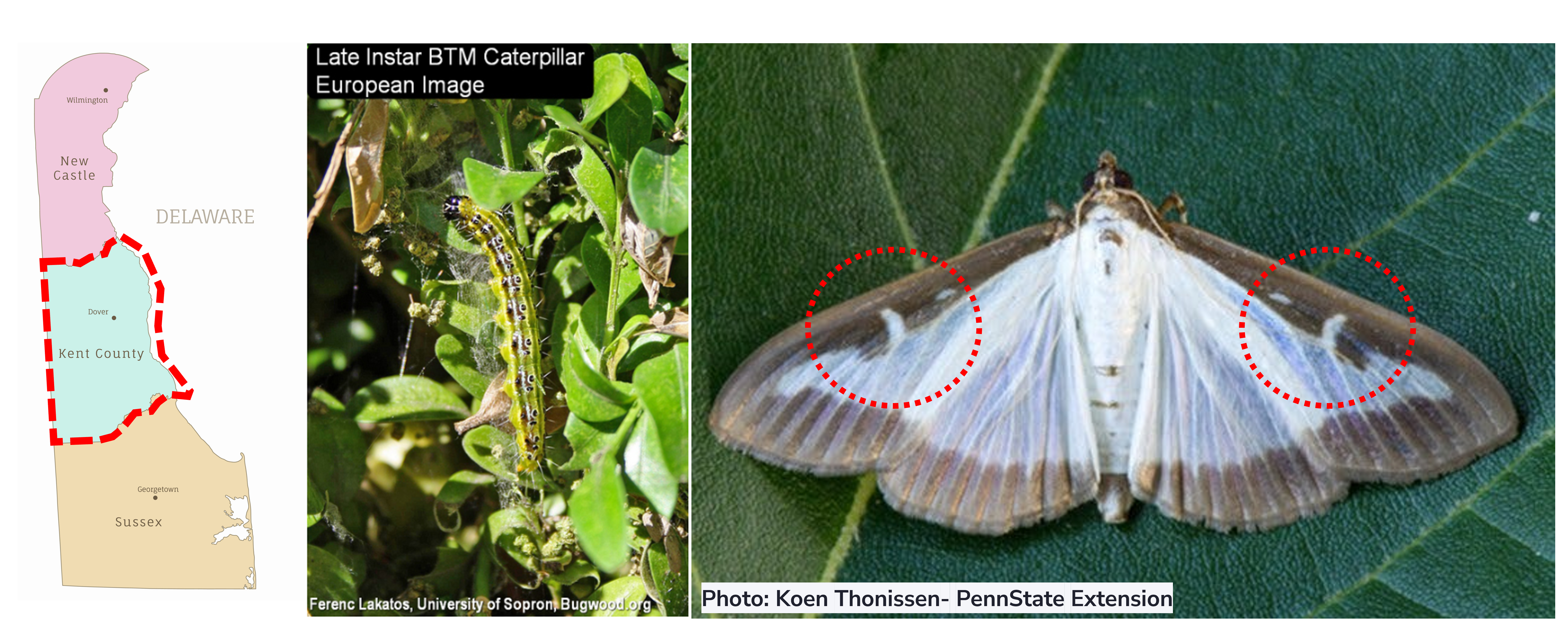

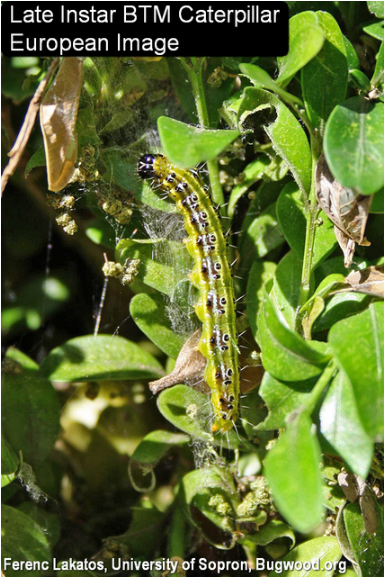
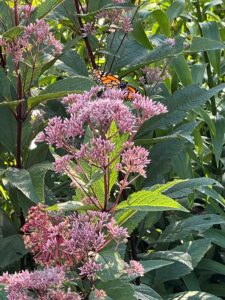
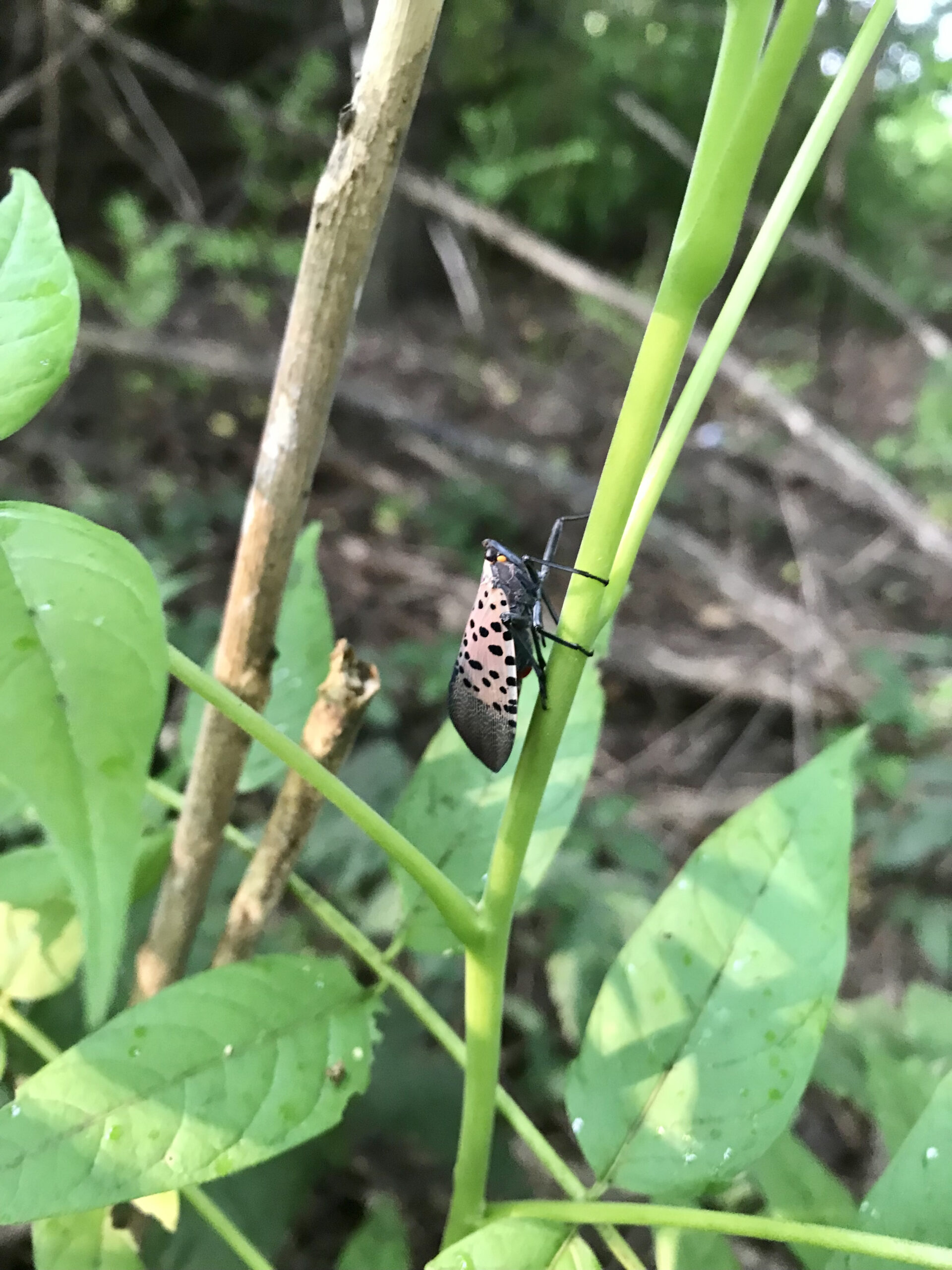 Right on time with last year’s observations, adult spotted lanternflies (SLF) were found in Pilesgrove (Salem County) NJ. In 2020 adults at the same location were found on July 23 so despite the earlier hatch observed in May, the phenology is right on track.
Right on time with last year’s observations, adult spotted lanternflies (SLF) were found in Pilesgrove (Salem County) NJ. In 2020 adults at the same location were found on July 23 so despite the earlier hatch observed in May, the phenology is right on track.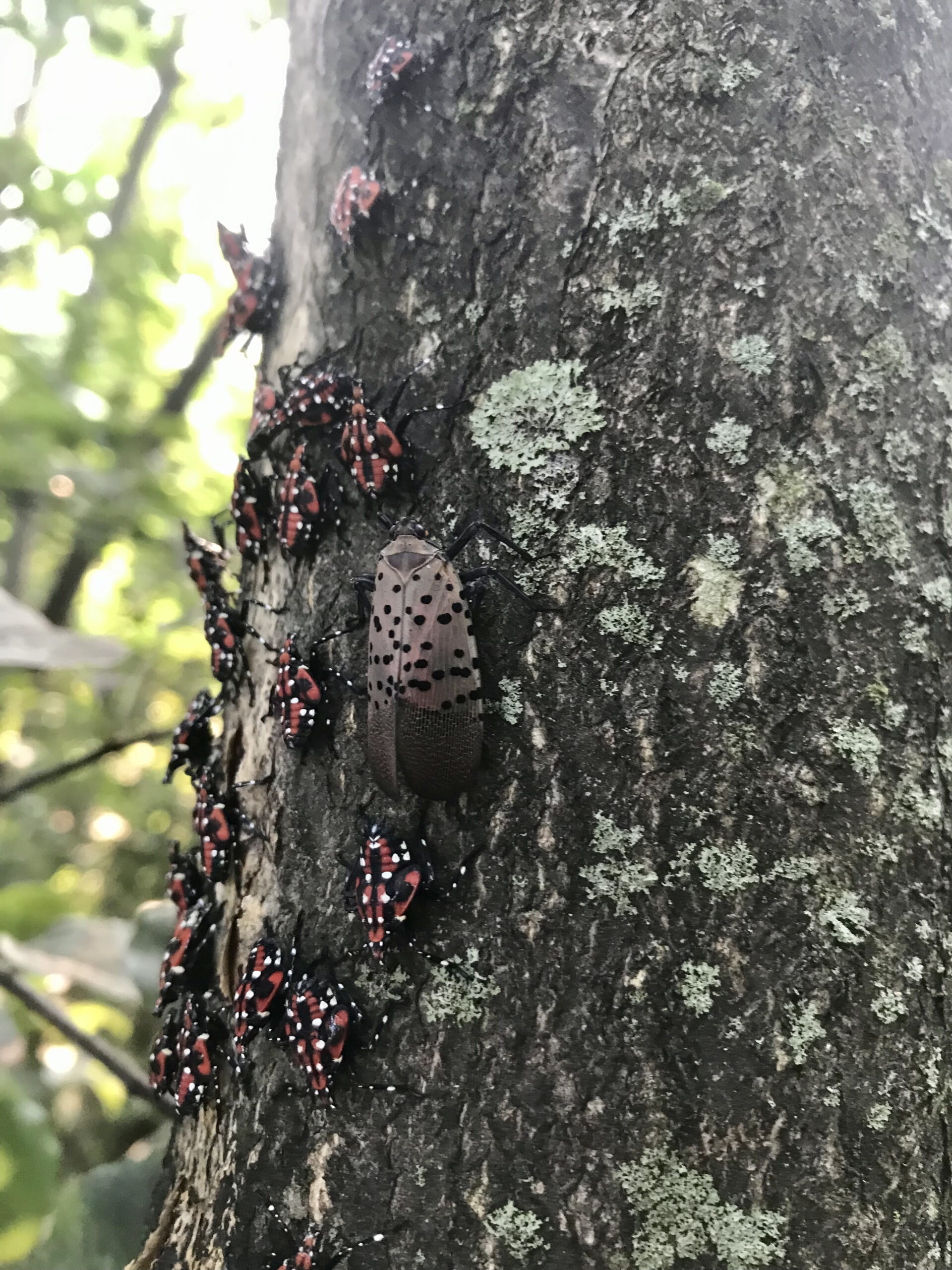 In 2020, adults dispersed in large numbers to commercial vineyards around September 4. I think this dispersal is a combination of depletion of resources (they are literally sucking the sap out of trees) and density. As NJ populations of SLF increase, they are depleting food resources faster. I expect this movement from wooded areas to vineyards will happen earlier this year, likely mid August. There will be a few bugs here and there, but commercial vineyard managers should wait to apply insecticides until you see the larger influx. Across sites, the 10 adults/vine threshold was reached around the same time last year – although some vineyards had much larger numbers per vine – so this is a good threshold to use for now. I will post management recommendations for the adults soon!
In 2020, adults dispersed in large numbers to commercial vineyards around September 4. I think this dispersal is a combination of depletion of resources (they are literally sucking the sap out of trees) and density. As NJ populations of SLF increase, they are depleting food resources faster. I expect this movement from wooded areas to vineyards will happen earlier this year, likely mid August. There will be a few bugs here and there, but commercial vineyard managers should wait to apply insecticides until you see the larger influx. Across sites, the 10 adults/vine threshold was reached around the same time last year – although some vineyards had much larger numbers per vine – so this is a good threshold to use for now. I will post management recommendations for the adults soon!